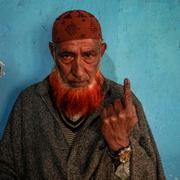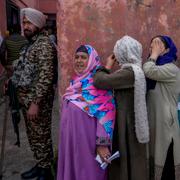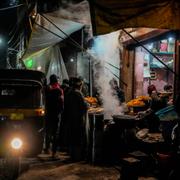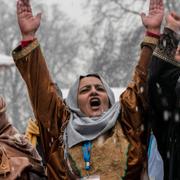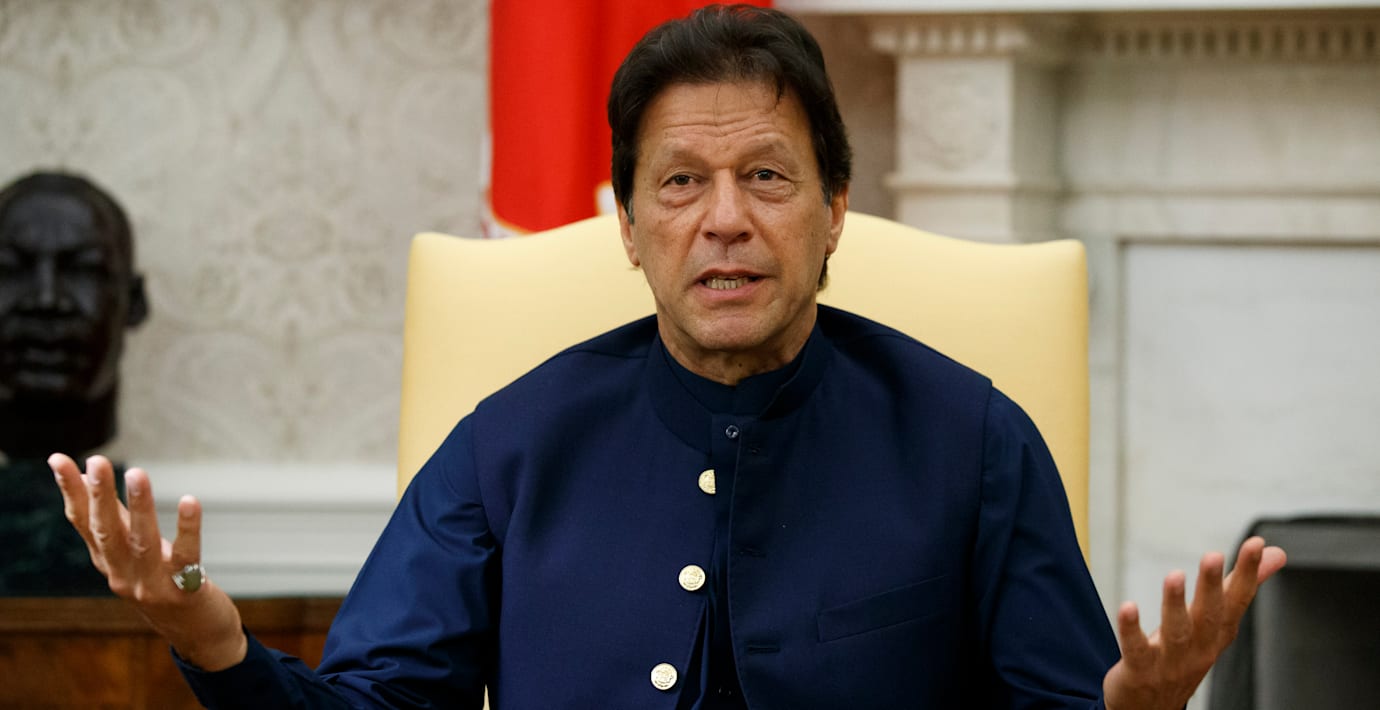
Pakistan: Omvärlden ser på som vid andra världskriget
Pakistans premiärminister Imran Khan frågar omvärlden om den tänker fortsätta att se på när ”indiska hindunationalismen sprider sig till Kashmir”, där en majoritet av befolkningen är muslimer, skriver AFP. Nu kräver han att andra länder ingriper.
Imran Khan jämställer dessutom dagens situation med omvärldens undanfallenhet mot Adolf Hitler under andra världskriget.
Stora demonstrationer har brutit ut i regionen efter Indiens beslut att dra tillbaka Jammu-Kashmirs särskilda rättigheter som gett området visst självstyre.
bakgrund
Kashmirkonflikten
Wikipedia (en)
The Kashmir conflict is a territorial conflict primarily between India and Pakistan over the Kashmir region. The conflict started after the partition of India in 1947 as a dispute over the former princely state of Jammu and Kashmir and escalated into three wars between India and Pakistan and several other armed skirmishes. China has also been involved in the conflict in a third-party role.
Both India and Pakistan claim the entirety of the former princely state of Jammu and Kashmir. India controls approximately 55% of the land area of the region and 70% of its population, Pakistan controls approximately 30% of the land, while China controls the remaining 15%.
India administers Jammu, the Kashmir Valley, Ladakh, and the Siachen Glacier. Pakistan administers Azad Kashmir and Gilgit-Baltistan. China administers the mostly uninhabited Shaksgam Valley, and the Aksai Chin region.The Indo-Pakistani War of 1947 was fought over the accession of the princely state of Jammu and Kashmir to India and resulted in a ceasefire with a front solidified along the Line of Control. After further fighting in the Indo-Pakistani War of 1965 and the Indo-Pakistani War of 1971, the Simla Agreement formally established the Line of Control between the two nations' controlled territories. In 1999, armed conflict between India and Pakistan broke out again in the Kargil War over the Kargil district.Since 1989, Kashmiri protest movements were created to voice Kashmir's disputes and grievances with the Indian government in the Indian-controlled Kashmir Valley, with some Kashmiri separatists in armed conflict with the Indian government based on the demand for self-determination. The 2010s were marked by further unrest erupting within the Kashmir Valley. The 2010 Kashmir unrest began after an alleged fake encounter between local youth and security forces. Thousands of youths pelted security forces with rocks, burned government offices and attacked railway stations and official vehicles in steadily intensifying violence. The Indian government blamed separatists and Lashkar-e-Taiba, a Pakistan-based militant group for stoking the 2010 protests. The 2016 Kashmir unrest erupted after killing of a Hizbul Mujahideen militant Burhan Wani by Indian security forces. Further unrest in the region erupted after the 2019 Pulwama attack.According to scholars, Indian forces have committed many human rights abuses and acts of terror against Kashmiri civilian population including extrajudicial killing, rape, torture and enforced disappearances.
According to Amnesty International, no member of the Indian military deployed in Jammu and Kashmir has been tried for human rights violations in a civilian court as of June 2015, although there have been military court martials held. Amnesty International has also accused the Indian government of refusing to prosecute perpetrators of abuses in the region.
Omni är politiskt obundna och oberoende. Vi strävar efter att ge fler perspektiv på nyheterna. Har du frågor eller synpunkter kring vår rapportering? Kontakta redaktionen
